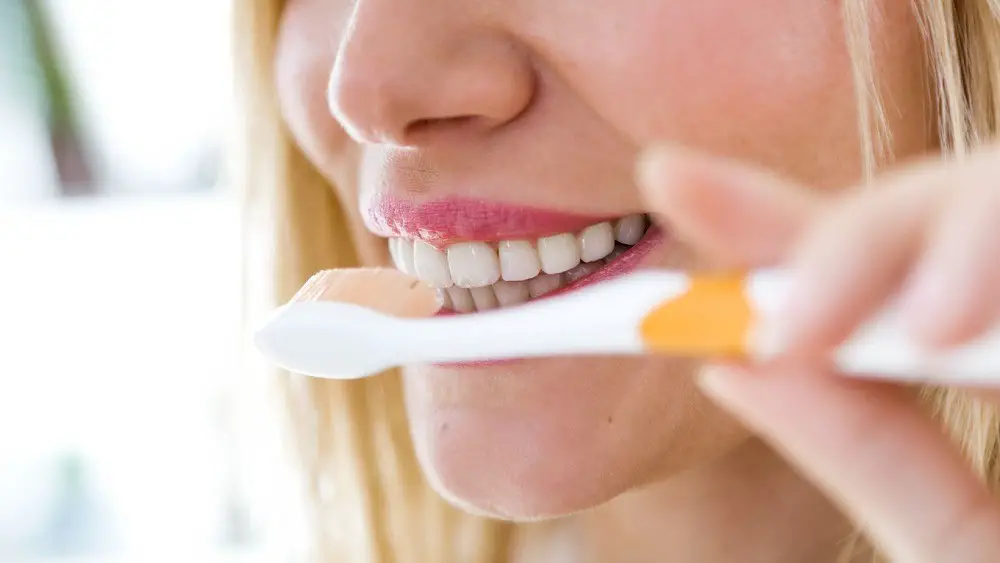Oral health has repercussions on all aspects of your life. You may not realize it, but the condition of your mouth impacts massively on your overall health and confidence levels. It is estimated that around half of all American adults are suffering from gum disease.
There are many factors that impact upon your oral health. These include your genetics, diet, and dental hygiene habits. You should take a holistic view of dental health, considering all of these factors with equal importance.

To maintain a good pH balance within your mouth, we advise you to eat a diet that is mostly alkaline. This will hopefully stabilize your oral pH above 7.5. At this point, your teeth have actually been known to remineralize, making them stronger and less vulnerable to decay. Focus on incorporating a lot of leafy green vegetables into your diet. These include kale, collard greens, spinach, and chard.
You may also wish to incorporate some ionic mineral supplements into your diet. As modern soil quality has deteriorated, it has become more difficult to get sufficient quantities of trace minerals through our food.
The most important ones are calcium, magnesium, potassium, phosphorus, and silica. Liquid ionic mineral supplements will give you an easily bioavailable source of these minerals for your body. This will help to maintain healthy bones and nerves.
Toothbrush
It is important to choose an appropriate and effective toothbrush. This will do most of the work when cleaning your teeth and gums, so it must be able to do a good job. It is estimated that electric toothbrushes remove on average 21% more plaque than manual ones. They also remove an additional 11% of gingivitis.
If you are concerned about the plastic waste associated with electric toothbrush heads, worry no more. There are many new products coming onto the market made from plants, such as these from Plus Ultra. They are BPA-free and made primarily from cornstarch.
Floss
Some commercial flosses have a coating on them, allowing them to slip more easily between your teeth. This tends to be made from perfluorinated polymers, similar to Teflon coatings. This has been linked to hormonal imbalances, ulcerative colitis, kidney cancer, and testicular cancer.
Traditional nylon floss is a good alternative and should be relatively easy to find. Many health stores will also sell plastic-free floss alternatives made from biodegradable bamboo or silk fibers. Some even come infused with tea tree oil, an antimicrobial agent.
Alternatively, you could opt for a water flosser. These have been proven to be more than 29% more effective than traditional flossing methods.
Toothpaste
Not all kinds of toothpaste are created equally. Get into the habit of reading the ingredients list of your toothpaste. Try to avoid products that contain sodium hydroxide, triclosan, sodium lauryl sulfate, and fluoride.
Good ingredients in your toothpaste include sodium bicarbonate, vitamin D, tea tree oil, green tea, menthol, and eucalyptol.
Mouthwash
Your mouthwash is highly likely to contain alcohol to kill bacteria in your mouth. This has been linked to an increased risk of throat cancer. Switch it out for a warm saltwater swirl, just take care not to swallow it. This has been proven to be as effective in killing microbes and reducing plaque as commercial mouthwashes.
Oil pulling
Many people who study Ayurvedic medicine have been practicing oil pulling for centuries. It gained popularity a few years ago but is recently making a comeback. To do an oil pull, you take a spoon of organic coconut oil into your mouth.
The heat of your mouth will melt the oil and you then spend 10 to 20 minutes swirling the liquid oil around. You should pull it through your teeth to ensure all areas of your mouth have made contact with the oil.
Coconut oil contains lauric acid which is naturally antibacterial. It reduces plaque and fungal buildups in your mouth. It is also believed to reduce bad breath and gum irritation. The oil draws toxins out of the gums, teeth, and body as a whole. It can also whiten your teeth. For extra benefits consider adding in a few drops of therapeutic oil – we like orange or tea trees.
Probiotics
We have all heard of taking probiotics for gut health, but not so many people know about oral probiotics. There are a lot of different bacteria that live in your mouth and would benefit from the introduction of probiotics. These will help to keep the harmful bacteria under control and allow the beneficial bacteria to thrive.
Probiotics can help the enzymes within our mouths to function correctly and balance out your mouth’s pH level.
Green tea
Green tea has been shown to reduce periodontal diseases and promote healthy teeth and gums. There are high levels of catechin, an antioxidant, found in green tea. This helps to reduce levels of inflammation and bad bacteria within the mouth.
Vitamin C
Vitamin C has been linked to boosted immune systems for many years now. This is equally true in terms of gum and mouth health. Good levels of vitamin C are linked to a reduction in bleeding gums, periodontitis, and gingivitis. If you do not want to take a vitamin C supplement, a natural alternative is Camu Camu. A teaspoon of this superfood contains 250 mg vitamin C – more than any other botanical source.
Tongue scraping
If you spend time looking at yourself in the mirror, you have likely checked out the appearance of your tongue. Have you ever seen a grey or white layer on the top? This is a buildup of dead cells, toxins, bacteria, and old food. Not exactly nice, is it?
A tongue scraper is an amazing tool that does what it says on the tin. They tend to be made from plastic or metal and will easily scrape off this layer of gunk on the top of your tongue. This will help to improve the smell of your breath and remove bacteria that would cause your teeth and cums to decay.
